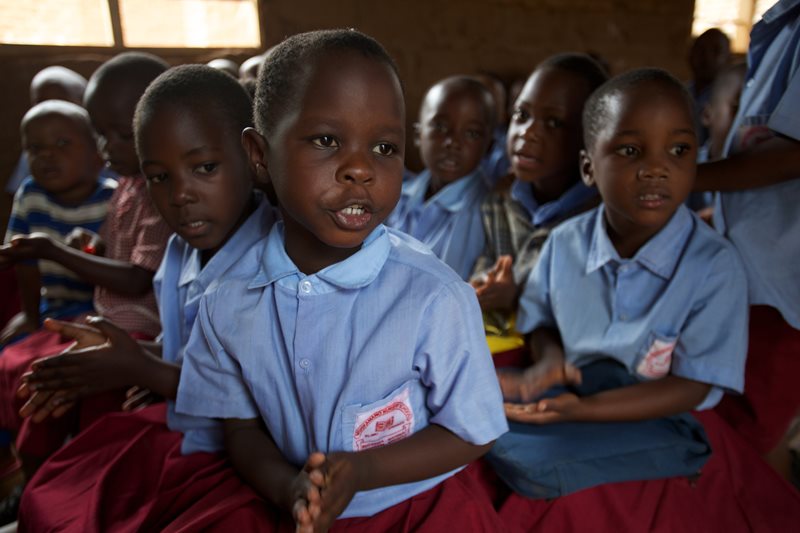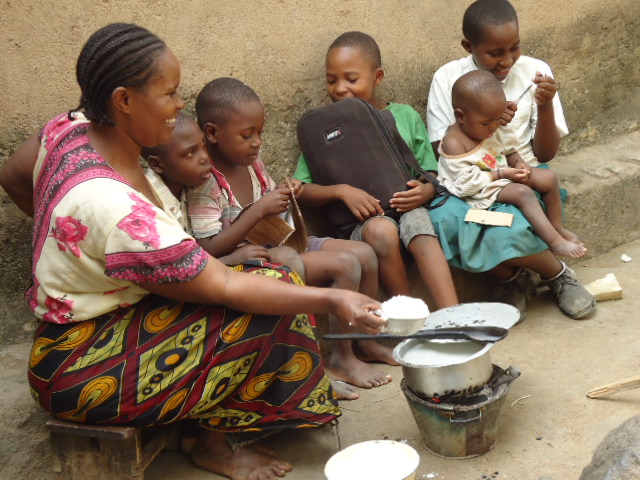Life is hard in this rapidly growing city

The city of Mwanza is located in the northeast of Tanzania, on the southern shores of Lake Victoria. Mwanza is the country’s second largest city, with approximately 700,000 inhabitants.
Many people move to the city and surrounding areas in search of a better life. They end up living in inadequate housing: about 60 per cent of houses are built in unplanned areas: Families here don’t have access to electricity or clean water. In addition, there are few schools and hospitals in these areas.
Most of the people living in Mwanza work either in fishing, or in the services related to the local industries. In the markets around Mwanza, men and women make a living by running small market stalls – they sell fruit and vegetables, clothes, or timber. However, families often don’t have enough to eat; they can’t afford to buy sufficient food due to the rising prices.
The lack of health care affects families in many ways. The number of people living with HIV/AIDS is higher in Mwanza than in other areas of the country. Tuberculosis is also common. The government is working towards increasing the number of doctors and health centres, but the lack of sanitary facilities and clean drinking water, unfortunately means that many people suffer from illnesses that are both preventable and treatable.
Children trapped in the cycle of poverty
In the past years, and thanks to the government’s work, the number of children attending schools has increased. However, there is a shortage of teachers and school supplies. Mwanza has some of the most crowded classrooms in the country. Girls are more likely to drop out of school than boys, especially at secondary level.
What we do in Mwanza
-60315.jpg?width=800)
Family strengthening: SOS Children’s Villages supports families so that they can stay together, and parents can care for their children. We work closely with the authorities and the community, and jointly work out what assistance families need.
We give monetary and social support, and offer training so that parents can get a job or start their own business.
We make sure that children go to school and have access to health care.
Around 250 families benefit from this programme at any one time. Since we started this programme in 2009, there has been an increase in the number of children attending school.
Care in families: If, in spite of our support, children are unable to live with their parents, they find a new home in the care of SOS Children’s Villages. Brothers and sisters grow up together in families.
Support for young people: The lack of opportunities make it difficult for young people to become independent. We provide young people with support and training so that they can get a job and are able to live independently.
Education: Young children attend the SOS Children’s Village Kindergarten along with children from the neighbourhood; this ensures that they are well integrated into the community from a young age. We invest in the local kindergartens and encourage families to send their children to day care. In cooperation with the government, we help finance the nearby school. Our aim is to improve the quality of the teaching and modernise the school infrastructure.
Health: We assist the local, government-run health centres financially, so that they can provide better care to mothers and children.